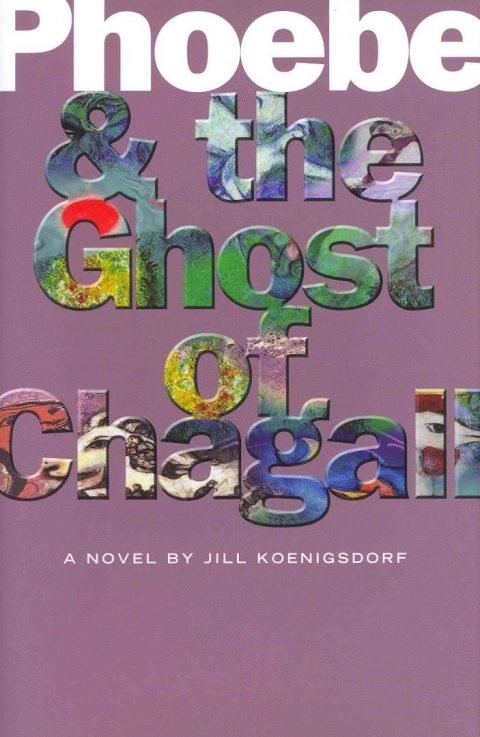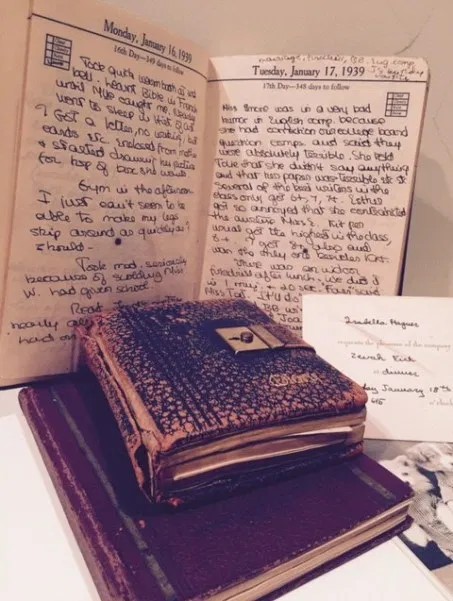As a child, I loved reading books about the Borrowers, a fictional family of tiny people who live secretly in the walls of an English house. To survive, they “borrow” items from the big people living there, who assume their things have been lost. Recently I’ve been wondering if the Borrowers have taken up residence with me too, because something I need has gone missing.
Inspiration.
 Inspiration is not like mislaid socks or lost buttons. You can’t see, hear or hold it, but you know when it’s gone. Because it’s the New Year, a hopeful time, when people are focused on fresh starts, I thought blogging about the problem might help me get back on track. After all, I’m starting something too—the ending of my novel. But the challenge of tying story elements together and weaving in concepts like crisis, climax and character arc into a brilliant conclusion has temporarily overwhelmed me. I need a creativity reboot!
Inspiration is not like mislaid socks or lost buttons. You can’t see, hear or hold it, but you know when it’s gone. Because it’s the New Year, a hopeful time, when people are focused on fresh starts, I thought blogging about the problem might help me get back on track. After all, I’m starting something too—the ending of my novel. But the challenge of tying story elements together and weaving in concepts like crisis, climax and character arc into a brilliant conclusion has temporarily overwhelmed me. I need a creativity reboot!
So I did what I always do when I’m stumped: I made a list. I also turned to authors I respect for advice. “Where do you find inspiration? Stimulation and motivation?” I asked them. “What do you do when you hit a rough patch? And if you’re stuck, fading or afraid of failing, how do you convince yourself that you’ll succeed?”
 Walk in nature. Writer Jill Koenigsdorf, author of Phoebe and the Ghost of Chagall, swears by going on long hikes in nature with her dogs. “I find that during my walks, all my senses are more attuned and I tend to slow down and mull ideas over. I will see a raven on a barbed wire fence or a slit-open bag of sand on the side of the road or a piece of torn fabric on a rose bush, and it will trigger a story,” she explains. “I also find if I am stuck writing a certain scene or character in a piece I have already started, that walking outdoors helps me see what the problem is.
Walk in nature. Writer Jill Koenigsdorf, author of Phoebe and the Ghost of Chagall, swears by going on long hikes in nature with her dogs. “I find that during my walks, all my senses are more attuned and I tend to slow down and mull ideas over. I will see a raven on a barbed wire fence or a slit-open bag of sand on the side of the road or a piece of torn fabric on a rose bush, and it will trigger a story,” she explains. “I also find if I am stuck writing a certain scene or character in a piece I have already started, that walking outdoors helps me see what the problem is. Watch a TED Talk. The extraordinary range of TED topics makes for a smorgasbord of thought-provoking talks. Best of all, you can watch them for free. Subjects range from understanding quantum physics to curing Alzheimer’s to discovering life on other planets, so whatever you need for your writing, you may be able to find right here. I gained valuable insights into one of my POV characters (a gamer), when I watched Silicon Valley entrepreneur Jane McGonigal’s talk on how “Gaming Can Make a Better World.” Highly recommended.
Watch a TED Talk. The extraordinary range of TED topics makes for a smorgasbord of thought-provoking talks. Best of all, you can watch them for free. Subjects range from understanding quantum physics to curing Alzheimer’s to discovering life on other planets, so whatever you need for your writing, you may be able to find right here. I gained valuable insights into one of my POV characters (a gamer), when I watched Silicon Valley entrepreneur Jane McGonigal’s talk on how “Gaming Can Make a Better World.” Highly recommended.- Listen to audiobooks. My son gave me a subscription to Audible.com for Christmas, and it’s changed my life. It’s also made me late to a lot of appointments, because I’m constantly pulling off the road to park so I can take notes on what I’m listening to. From a craft standpoint, however, I’ve become a convert. When I listen to books read aloud, I hear things I didn’t notice when I read in my head, like how the author uses rhythm, cadence, syntax, tone and vocabulary to create an authentic voice.
 Seek out other people’s stories in whatever forms they take. Consider using unconventional materials. Stories can be found wherever we are, so be open about where to look. Sources like stand-up comedy routines, church sermons, obituaries, maps, yearbooks, brochures, games, restaurant menus, journals and even junk mail can be chock-a-block full of anecdotes and ideas. Recently, my husband and I discovered a stash of his mother’s old diaries. The yellowing pages, antiquated language, and old-fashioned perspective from a different era is a treasure chest of data— charming and sweet and a little bit sad. Reading the words my mother-in-law wrote as a 16-year-old in 1939 has been eye-opening. Bonus materials crammed into her diaries included postcards, dance cards, sketches, and even notes from summer camp friends. My favorite one was addressed to “a girl who can keep her temper well.”
Seek out other people’s stories in whatever forms they take. Consider using unconventional materials. Stories can be found wherever we are, so be open about where to look. Sources like stand-up comedy routines, church sermons, obituaries, maps, yearbooks, brochures, games, restaurant menus, journals and even junk mail can be chock-a-block full of anecdotes and ideas. Recently, my husband and I discovered a stash of his mother’s old diaries. The yellowing pages, antiquated language, and old-fashioned perspective from a different era is a treasure chest of data— charming and sweet and a little bit sad. Reading the words my mother-in-law wrote as a 16-year-old in 1939 has been eye-opening. Bonus materials crammed into her diaries included postcards, dance cards, sketches, and even notes from summer camp friends. My favorite one was addressed to “a girl who can keep her temper well.”- Change Your Location. Change Your Perspective. A writer’s job is to look at the world from different points of view. Kathy Wilson, writer, teacher, digital media specialist and founder of the film collective Rikaroo thinks changing locations can help. Writing in a coffee shop in Harlem, for instance, will give you a different perspective than hanging out on Madison Avenue. Switching it up, she says, can be as simple as taking “a ride on the subway, intersecting with different lives, exploring new neighborhoods, eating different food, talking with my students, spending time with my father and his friends [who] are in their eighties and nineties [and] hearing their stories.”” Kathy’s also inspired by the courage and loyalty of animals. “Spending time with my dog inspires me,” she adds. “She seems to have drawn the short straw in life, yet never gives up.”
- Teach. Volunteer. I tutor at a school for disadvantaged kids where 100% of the students are on scholarship. Despite significant and often heartbreaking hardships, every senior graduates to attend a four-year college. Most are the first in their families to do so. Every time I set foot on campus, I’m awed by the courage, determination, and resiliency of these teens—often in the face of unspeakable odds. Talk about putting things into perspective…
- Take a class. Want to learn to Salsa dance, speak Swahili, sew, sing, sail, or practice Pilates? Go for it. It’s all grist for the mill. Having interests and hobbies is good for character creation, so writers should be lifelong learners. In order to prepare for a lecture I’m giving, I’ll be polishing my public speaking skills next month by working with stage and screen actor Andrew Hurteau, who helps people “tell a more compelling story” as a coach with Butterfield Speaks. Hollywood here I come.
- Give Yourself a Deadline: Inspiration is more likely to show up if you have a deadline. If you don’t, make one up and ask a friend (or your writer’s group) to enforce. Procrastination is one of the seven deadly writer’s sins.
- Think of writing as a job. Stacy Nyikos, author of numerous picture books and the middle grade novel, Dragon Wishes, says she’s a drill sergeant when it comes to her writing routine. “I write every day, rain or shine, no matter if inspiration comes to the table or not. Writing is my job. Isn’t that how one treats any other job?”
Most importantly, don’t forget the words of Jack London. “You can’t wait for inspiration. You have to go after it with a club.”
So, come on. Find your club and have at it. Let me know how it goes.